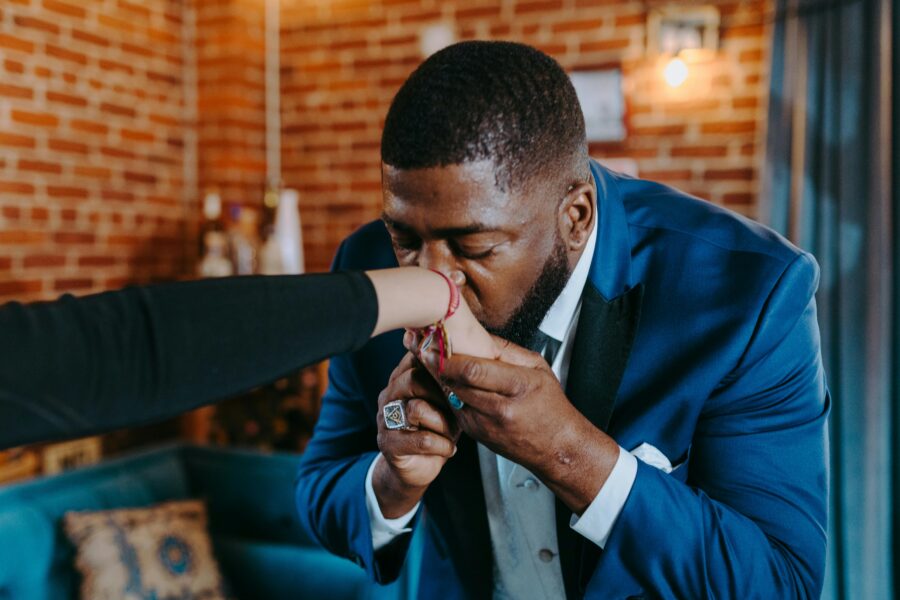There was a time when failing to give up your seat for an older person could raise more than a few eyebrows. Or calling adults by their first name meant you were being disrespectful.
But with each passing decade, some of these hardcore social etiquette are going out of fashion (as they should). I’m not advocating for a rebellious society, but some ideas don’t fit into how we live or work anymore.
So, I thought I’d make a list of some of the once-sacred social rules that no longer serve us.
1. Elbows Off the Table
This table manners rule has been passed down since medieval times; one that is often barked across dinner tables by parents or grandparents without much explanation.
The rule originated from a time when tables were narrow and wobbly, and keeping your elbows off helped prevent accidental spills. It also suggested poor posture and a lack of refinement.
No one is dining under chandeliers anymore. We are eating at sturdy kitchen counters and cafe booths with friends. Space isn’t limited, and the mood is casual.
That said, resting your elbows while eating doesn’t make you rude; it makes you human. Maybe in formal settings, you may consider sitting up straight and respecting the room’s tone. But it doesn’t count in everyday life. Feel free to bend this rule, and your elbow.
2. Handwritten Thank-You Notes
Yes, handwritten thank-you notes feel special. The paper’s texture, the ink, the time that someone clearly put into writing it—it’s all a nice gesture.
For a long time, though, it was more than a ‘nice gesture’, it was expected. If you didn’t send one, you were considered ungrateful. But in this era of email and inboxes, who’s got time to hunt down stamps and stationery?
A sincere text message or voice note carries just as much meaning as a physical card. It’s the message that counts, right? In short, say thank you and mean it.
3. Calling Adults by Their First Name
Growing up, calling an adult by their first name was a social blasphemy; one that easily landed you a scold. The rule was that we tacked on a Mr. or Mrs. or even Sir/Madam when addressing adults. That meant everyone who was older, taller or appeared to have gray hair.
I’m not sure where the line started to blur. Perhaps it was in college when our lecturers insisted on being called ‘Just Josh.’ They showed us that the social dynamics have changed. Workplaces are more casual, and we now prioritize connection over formality.
Some settings will still require the traditional titles. But with millennials and Gen Z, all these feel unnecessary. A first-name basis doesn’t automatically equate disrespect. In many cases, it means you are treating the other person as an equal or friend.
If someone says, ‘Call me Carol,’ then go with Carol. And if they prefer ‘Auntie Brenda,’ respect that too.
Also Read: 10 Legit Excuses to Cancel Plans Last Minute
4. Kissing a Woman’s Hand

Just because I won’t swoop in to kiss your hand doesn’t mean chivalry is dead. Well, it kinda is, but that’s not the point. Kissing a woman’s hand falls somewhere between outdated and awkward.
Can we stick to modern ways? A warm smile, a firm handshake and a simple hello should suffice. And if you want to take things a step further, a hug will do the trick.
5. Dressing Up for Occasions
I love my sweatpants. They are warm and comfy, and they perfectly reflect my laid-back vibe. It’s what I wear to almost everything: bank visits, doctor appointments, even when flying on a plane. I don’t feel the need to squeeze into stiff clothes just to attend a casual gathering. And no, I’m not being lazy, it’s who I am.
This isn’t to say we should toss all dress codes out the window. Occasions like weddings and job interviews still call for the traditional polish. But you don’t need the pressure to look the part for most everyday events.
6. Answering Every Phone Call
Not too long ago, letting the phone ring without picking up was rude. If someone called, you answered. Simple as that!
This makes sense since phones were attached to walls and making a call wasn’t something you could do five times a day.
Now that we carry our phones everywhere and receive calls around the clock, the expectation to answer every call instantly has quietly expired.
Failing to pick up your call doesn’t mean I’m avoiding you. It means I am in the middle of something and will get back once I’m free. Yes, other times, it means I’m ignoring you. But nine out of ten times, it’s usually because I don’t recognize the number.
7. Offering Your Seat to Someone Older
The rule was (and has always been) that if someone older got on the bus, we stood and offered our seat. It taught empathy and basic respect.
Like many traditional etiquette, this one plays out differently today. The argument is that if a bus or train is packed to the brim, why not wait for the next one? Forcing your way into an already crowded space doesn’t help anyone. I paid for my seat because I really need to sit.
I can give up my seat if I want to, and often, I do. But it’s not a rule carved in stone. This comes from choice and not the pressure of outdated expectations.
8. Men Make the First Move
Men have always been expected to lead: in conversations, asking for dates, planning and paying for them, among others. Women have always been expected to wait to be pursued so as not to appear too forward.
In truth, there is nothing wrong with a woman asking someone out. Why hold back when you are genuinely interested?
9. Men Always Pay for Dates
In a segment on The Late Show, when asked who pays on a first date, 50 Cent witfully replied, ‘Whoever’s idea it was to go on the date.’
That’s how it should be. It’s no longer about proving who’s in charge or who’s more generous. If a guy wants to treat, that’s great. If a woman offers to go Dutch, that’s perfectly fine too.
It’s all good, provided there’s no pressure and both people feel valued.
10. Never Talking About Money
For years, money was one of those “don’t go there” topics, right up there with politics and religion.
Not discussing money has kept people in the dark, especially when it comes to things like debt, budgeting, and financial planning. Thankfully, more people are now breaking the silence.
Friends are talking about salaries, and couples are having honest money conversations early on. And this is a good thing.
Sure, you don’t need to bring up rent prices at a birthday dinner, but an honest conversation about money (at the right time and with the right people) is empowering.
Redefining Etiquette
As it turns out, etiquette isn’t fixed. Just like everything else, it changes with time. Most of these rules made perfect sense growing up. They no longer do. This doesn’t mean manners don’t matter; it means we get to redefine them.








